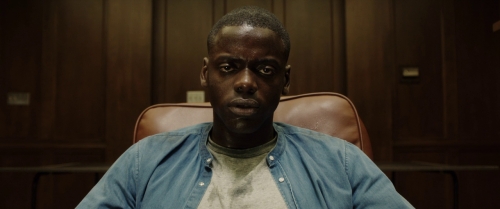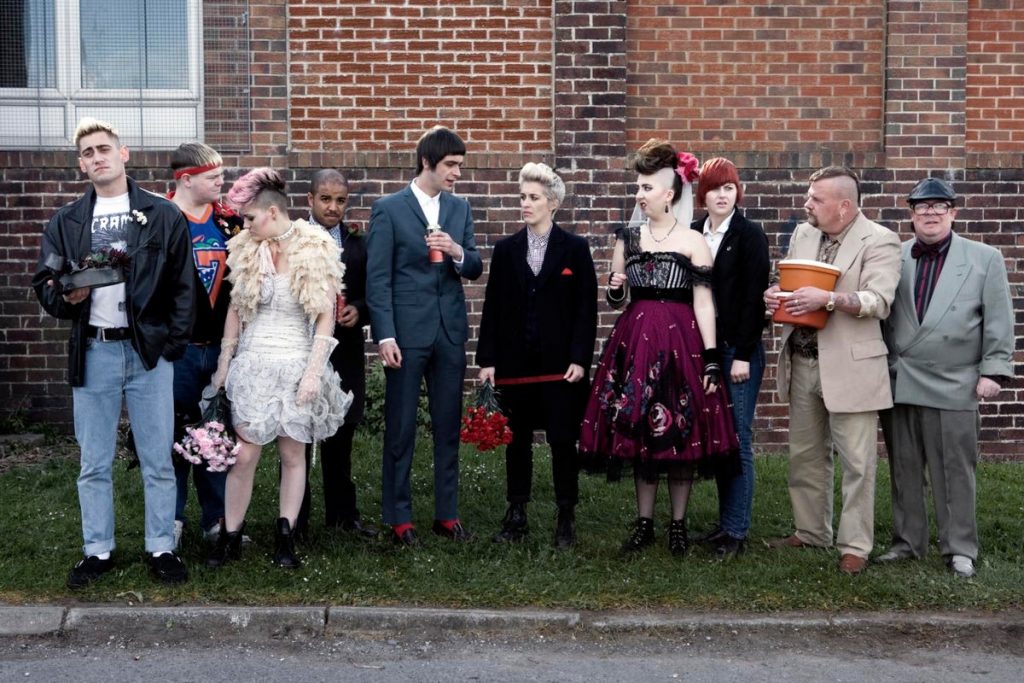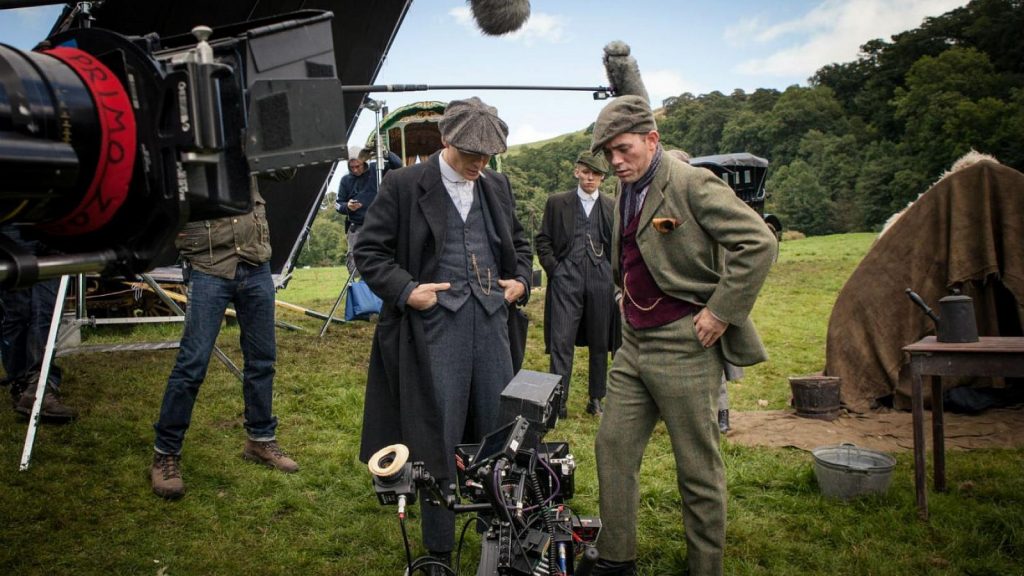Project One – Short Film Production & Distribution

Units Covered
Unit 9: Characteristics and contexts in media and communication
unit 10: Engaging with an audience in creative media production
The Project Brief
With every unit covered across the duration of your course, you will receive a ‘project brief’ which will inform you of the aims and requirements of a media project. Briefs are used across the industry to outline the creative and technical expectations of a creative media project.
For your first Level 3 Extended Diploma project, you will combine Unit 9 and Unit 10 – building on previous skills and knowledge to plan, produce and distribute a short film (max. duration 10 minutes) in the specific style of a chosen genre.
This project will enable you to strengthen application of filmmaking processes and skills used in creative media production and technology and to the particular characteristics and methods of communication within the media sector. Through a range of design and research activities and related skills, you will work both individually and as part of a production team to produce a short narrative film.
You will explore audience categories, genre formats and theoretical approaches to produce a short film for public viewing.

The Project
This project will provide you with an opportunity to develop a focused, in-depth, understanding of the range, characteristics, complexity and contexts that define media and communication activity. Across the project, you will apply exploration and investigation to enter into a more formal dialogue of personal interrogation and understanding designed to confirm strengths, enthusiasms and ambitions.
Through pitching, planning and distribution you will be encouraged to demonstrate an understanding of audiences and theoretical approaches to your chosen area of activity, and reflect on the importance of collaboration and communication with those audiences during engagement with complex problem solving tasks.

Pitch Checklist
Film Title
Logline
Summary – A brief explanation of your film
Narrative Structure – How will the story be told? Consider narrative structure & contextual theory which supports your narrative intentions.
Narrative Devices – Which narrative devices will you embed? How will these support your visual storytelling aims and the broader ambitions of your film?Identify plot points – Consider Equilibrium, Disruption, Recognition.
Characters – Who are the characters in your film and how will they drive the narrative? What is the purpose of these characters? Identify their wants and needs.
Genre & Conventions – How would you define your films genre? What are the conventions of this genre? Does your film adopt conventions from different genres? Explore the common practices within this genre and practitioners in relation to this genre.
Technical Coding – Lighting, Cinematography, Editing. How will you use equipment to support visual storytelling.
Mise-en-scene – Costumes, Props, Location, Actors, Make-Up
Equipment – What equipment will you need? What techniques and processes will you apply? How will you use your previous skills and experiences to meet the outcomes of your short film project.
Inspiration and influences – Refer to the research sources, films and texts that have inspired or influenced the development of your short film idea. How has a specific film given you an idea? Has a music video inspired the style? Is there a particular filmmaker that has influenced you? Provide references and visuals to discuss.
Challenges – What obstacles might you face? Budget, casting, sourcing locations etc.
Submission Details & Deadline
Unit 9-12 of the level 3 extended diploma are designed to further develop the students academic and practical skills and with ongoing and frequent guidance, formative assessment and feedback to help inform, support students progress, understanding and competence with summative assessment points throughout.
You must submit your work via your Digital Space. You should ensure all work is uploaded within the relevant areas and referenced accordingly.
We will not accept work as final submission sent over teams or e-mail. Work submitted late will be subject to referral.
19/10/2021 – Task 1 Task 2 Task 3 Evidence
14/12/2021 – Task 4, Task 5 Evidence
All evidence must be submitted for final feedback on the 19/10/2021

Professional Practice
The Level 3 Diploma and Extended Diploma in Creative Media Production & Technology will provide you with opportunities to develop and utilise broad, transferable skills by encouraging an ethos of personal and professional development. These include:
- Initiative
- Independent inquiry
- Creative thinking
- Reflective learning
- Communication
- Team-working
- Self-management
- Effective participation
- Problem solving

Useful Links
Screen Yorkshire champions the film, TV, games and digital industries in Yorkshire and the Humber, UK.
Producers of visionary film and TV drama. Established in 2002, Warp Films is one of the most exciting and respected production companies in the UK today.
No Film School is the leading worldwide community of filmmakers, video producers, and independent creatives.
A useful website with resources and software to help you plan and produce film and video content.
https://www.scienceandmediamuseum.org.uk/
The National Science and Media Museum is situated in the heart of Bradford, UNESCO City of Film. The museum aims to be the best museum in the world for inspiring people to learn about, engage with and create media.
The BFI is the lead organisation for film in the UK. The BFI use Lottery funds to support film production, distribution, education and audience development.
Screen Yorkshire
Screen Yorkshire champions the film, TV, games and digital industries in Yorkshire and the Humber, UK. Our aim is to secure and support the very best projects, companies and individuals, helping to make the region one of the most sought-after destinations for production in the UK. We deliver this vision by investing financially in productions; developing talent to create a skilled workforce; and fostering Yorkshire’s global reputation as an outstanding location for creatives.
Screen Yorkshire provides the Film Office services for Yorkshire & Humber and has been leading the development of the Yorkshire Screen Hub, a cluster for the screen industries, supported by the BFI through its Creative Cluster Challenge Fund. Screen Yorkshire also works with ScreenSkills, NFTS and the BFI to devise and deliver industry schemes to develop regional and UK wide talent.



Tutorials and Workshops
These useful tutorials talk you through the essential processes and techniques used to produce a film. Familiarise yourself with the terminology utilised in the film industry and consider how you will apply these as part of you own film production.
Recommended Viewing
Independent Short Films
Social Realism
Kes (1969) Directed by Ken Loach
This is England (2006) Directed by Shane Meadows
Saturday Night and Sunday Morning (1960) Directed by Karel
A Taste of Honey (1961) Directed by Tony Richardson
Billy Liar (1963) Directed by John Schlesinger
Film Noir & Neo-Noir
The Maltese Falcon (1941) Directed by John Huston
Sin City (2005) Directed by Frank Miller & Robert Rodriguez
Double Indemnity (1944) Directed by Billy Wilder
John Wick (2014) Directed by Chad Stahelski
Drive (2011) Directed by Nicolas Winding Refn
Western
The Good, The Bad & The Ugly (1966) Directed by Sergio Leone
Bone Tomahawk (2015) Directed by S. Craig Zahler
The Hateful Eight (2016) Directed by Quentin Tarantino
Unforgiven (1992) Directed by Clint Eastwood
Science-Fiction
Metropolis (1927) Directed by Fritz Lang
2001: A Space Odyssey (1968) Directed by Stanley Kubrick
Blade Runner (1982) Directed by Ridley Scott
Alien (1979) Directed by Ridley Scott
Back to the Future (1985) Robert Zemeckis
Horror
Psycho (1960) Directed by Alfred Hitchcock
Midsommar (2019) Directed by Ari Aster
The Shining (1980) Directed by Stanley Kubrick
Get Out (2017) Directed by Jordan Peele
Halloween (1978) Directed by John Carpenter
Drama
Romeo & Juliet (1996) Directed by Ba Lurhman
City of God (2003) Directed by Fernando Meirelles, Kátia Lund
Angel-A (2005) Directed by Luc Besson
No Country for Old Men (2007) Directed by The Coen Brothers
Memento (2000) Directed by Christopher Nolan
La Haine (1995) Directed by Mathieu Kassovitz